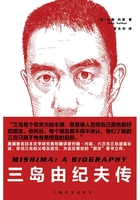That,he reflected,might almost have been a tranion from one of the Party textbooks.The Party claimed,of course,to have liberated the proles from bondage.Before the Revolution they had been hideously oppressed by the capitalists,they had been starved and flogged,women had been forced to work in the coal mines (women still did work in the coal mines,as a matter of fact),chil-dren had been sold into the factories at the age of six.But simulta-neously,true to the Principles of doublethink,the Party taught that the proles were natural inferiors who must be kept in subj ection, like animals,by the application of a few ****** rules.In reality very little was known about the proles.It was not necessary to know much.So long as they continued to work and breed,their other ac-tivities were without importance.Left to themselves,like cattle turned loose upon the plains of Argentina,they had reverted to a style of life that appeared to be natural to them,a sort of ancestral pattern.They were born,they grew up in the gutters,they went to work at twelve,they passed through a brief blossoming period of beauty and sexual desire,they married at twenty,they were middle-aged at thirty,they died,for the most part,at sixty.Heavy physical work,the care of home and children,petty quarrels with neigh-bours,films,football,beer,and above all,gambling,filled up the ho-rizon of their minds.To keep them in control was not difficult.A few agents of the Thought Police moved always among them, spreading false rumors and marking down and eliminating the few individuals who were j udged capable of becoming dangerous;but no attempt was made to indoctrinate them with the ideology of the Party.It was not desirable that the proles should have strong politi-cal feelings.All that was required of them was a primitive patriot-ism which could be appealed to whenever it was necessary to make them accept longer working hours or shorter rations.And even when they became discontented,as they sometimes did,their dis-content led nowhere,because being without general ideas,they could only focus it on petty specific grievances.The larger evils in-variably escaped their notice.The great majority of proles did not e-ven have telescreens in their homes.Even the civil police interfered with them very little.There was a vast amount of criminality in London,a whole world-within-a-world of thieves,bandits,prosti-tutes,drug peddlers,and racketeers of every deion;but since it all happened among the proles themselves,it was of no importance. In all questions of morals they were allowed to follow their ances-tral code.The sexual puritanism of the Party was not imposed upon them.Promiscuity went unpunished; divorce was permitted.For that matter,even religious worship would have been permitted if the proles had shown any sign of needing or wanting it.They were beneath suspicion.As the Party slogan put it:"Proles and animals are free."
Winston reached down and cautiously scratched his varicose ul-cer.It had begun itching again.The thing you invariably came back to was the impossibility of knowing what life before the Revolution had really been like.He took out of the drawer a copy of a children's history textbook which he had borrowed from Mrs.Parsons,and began copying a passage into the diary:
In the old days [it ran],before the glorious Revolution,Lon-don was not the beautiful city that we know today.It was a dark, dirty,miserable place where hardly anybody had enough to eat and where hundreds and thousands of poor people had no boots on their feet and not even a roof to sleep under.Childrenno older than you are had to work twelve hours a day for cruel masters, who flogged them with whips if they worked too slowly and fed them on nothing but stale breadcrusts and water.But in among all this terrible poverty there were just a few great big beautiful houses that were lived in by rich men who had as many as thirty servants to look after them.These rich men were called capitalists.They were fat,ugly men with wicked faces,like the one in the picture on the opposite page.You can see that he is dressed in a long black coat which was called afrock coat,and a queer,shiny hat shaped like a stovepipe,which was called a top hat.This was the uniform of the capitalists,and no one else was allowed to wear it.The capitalists owned everything in the world,and everyone else was their slave. They owned all the land,all the houses,all the factories,and all the money.If anyone disobeyed them they could throw them into prison,or they could take his job away and starve him to death. When any ordinary person spoke to a capitalist he had to cringe and bow to him,and take off his cap and address him as"Sir". The chief of all the capitalists was called the King,and—
But he knew the rest of the catalogue.There would be mention of the bishops in their lawn sleeves,the j udges in their ermine robes,the pillory,the stocks,the treadmill,the cat-o'-nine-tails,the Lord Mayor's Banquet,and the practice of kissing the Pope's toe. There was also something called the j us primae noctis,which would probably not be mentioned in a textbook for children.It was the law by which every capitalist had the right to sleep with any woman working in one of his factories.
How could you tell how much of it was lies? It might be true that the average human being was better off now than he had been before the Revolution.The only evidence to the contrary was the mute protest in your own bones,the instinctive feeling that the con-ditions you lived in were intolerable and that at some other time they must have been different.It struck him that the truly charac-teristic thing about modern life was not its cruelty and insecurity, but simply its bareness,its dinginess,its listlessness.Life,if you looked about you,bore no resemblance not only to the lies that streamed out of the telescreens,but even to the ideals that the Party was trying to achieve.Great areas of it,even for a Party member, were neutral and nonpolitical,a matter of slogging through dreary jobs,fighting for a place on the Tube,darning a worn-out sock,cad-ging a saccharine tablet,saving a cigarette end.The ideal set up by the Party was something huge,terrible,and glittering—a world of steel and concrete,of monstrous machines and terrifying weapons—a nation of warriors and fanatics,marching forward in perfect uni-ty,all thinking the same thoughts and shouting the same slogans, perpetually working,fighting,triumphing,persecuting—three hun-dred million people all with the same face.The reality was deca-ying,dingy cities where underfed people shuffled to and fro in leaky shoes,in patched-up nineteenth-century houses that smelt always of cabbage and bad lavatories.He seemed to see a vision of London, vast and ruinous,city of a million dustbins,and mixed up with it was a picture of Mrs.Parsons,a woman with lined face and wispy hair,fiddling helplessly with a blocked wastepipe.
He reached down and scratched his ankle again.Day and night the telescreens bruised your ears with statistics proving that people today had more food,more clothes,better houses,better recrea-tions—that they lived longer,worked shorter hours,were bigger, healthier,stronger,happier,more intelligent,better educated,than the people of fifty years ago.Not a word of it could ever be proved or disproved.The Party claimed,for example,that today forty per cent of ***** proles were literate; before the Revolution,it was said,the number had only been fifteen per cent.The Party claimed that the infant mortality rate was now only a hundred and sixty per thousand,whereas before the Revolution it had been three hun-dred—and so it went on.It was like a single equation with two un-knowns.It might very well be that literally every word in the histo-ry books,even the things that one accepted without question,was pure fantasy.For all he knew there might never have been any such law as the j us primae noctis,or any such creature as a capitalist,or any such garment as a top hat.
Everything faded into mist.The past was erased,the erasure was forgotten,the lie became truth.Just once in his life he had pos-sessed—after the event:that was what counted—concrete,unmis-takable evidence of an act of falsification.He had held it between his fingers for as long as thirty seconds.In 1973,it must have been—at any rate,it was at about the time when he and Katharine had parted.But the really relevant date was seven or eight years earlier.
The story really began in the middle sixties,the period of the great purges in which the original leaders of the Revolution were wiped out once and for all.By 1970 none of them was left,except Big Brother himself.All the rest had by that time been exposed as traitors and counterrevolutionaries.Goldstein had fled and was hid-ing no one knew where,and of the others,a few had simply disap-peared,while the majority had been executed after spectacular pub-lic trials at which they made confession of their crimes.Among the last survivors were three men named Jones,Aaronson,and Ruther-ford.It must have been in 1965 that these three had been arrested. As often happened,they had vanished for a year or more,so that one did not know whether they were alive or dead,and then had suddenly been brought forth to incriminate themselves in the usual way.They had confessed to intelligence with the enemy (at that date,too,the enemy was Eurasia),embezzlement of public funds, the murder of various trusted Party members,intrigues against the leadership of Big Brother which had started long before the Revolu-tion happened,and acts of sabotage causing the death of hundreds of thousands of people.After confessing to these things they had been pardoned,reinstated in the Party,and given posts which were in fact sinecures but which sounded important.All three had written long,abj ect articles in"the Times",analyzing the reasons for their defection and promising to make amends.
Some time after their release Winston had actually seen all three of them in the Chestnut Tree Café.He remembered the sort of terrified fascination with which he had watched them out of the cor-ner of his eye.They were men far older than himself,relics of the ancient world,almost the last great figures left over from the heroic early days of the Party.The glamor of the underground struggle and the civil war still faintly clung to them.He had the feeling,though already at that time facts and dates were growing blurry,that he had known their names years earlier than he had known that of Big Brother.But also they were outlaws,enemies,untouchables,doomed with absolute certainty to extinction within a year or two.No one who had once fallen into the hands of the Thought Police ever es-caped in the end.They were corpses waiting to be sent back to the grave.
There was no one at any of the tables nearest to them.It was not wise even to be seen in the neighborhood of such people.They were sitting in silence before glasses of the gin flavored with cloves which was the speciality of the cafe.Of the three,it was Rutherford whose appearance had most impressed Winston.Rutherford had once been a famous caricaturist,whose brutal cartoons had helped to inflame popular opinion before and during the Revolution.Even now,at long intervals,his cartoons were appearing in the Times. They were simply an imitation of his earlier manner,and curiously lifeless and unconvincing.Always they were a rehashing of the ancient themes—slum tenements,starving children,street battles, capitalists in top hats—even on the barricades the capitalists still seemed to cling to their top hats—an endless,hopeless effort to get back into the past.He was a monstrous man,with a mane of greasy grey hair,his face pouched and seamed,with protuberant lips.At one time he must have been immensely strong;now his great body was sagging,sloping,bulging,falling away in every direction.He seemed to be breaking up before one's eyes,like a mountain crumb-ling.
It was the lonely hour of fifteen.Winston could not now re-member how he had come to be in the caféat such a time.The place was almost empty.A tinny music was trickling from the tele-screens.The three men sat in their corner almost motionless,never speaking.Uncommanded,the waiter brought fresh glasses of gin. There was a chessboard on the table beside them,with the pieces set out but no game started.And then,for perhaps half a minute in all,something happened to the telescreens.The tune that they were playing changed,and the tone of the music changed too.There came into it—but it was something hard to describe.It was a peculiar, cracked,braying,j eering note;in his mind Winston called it a yellow note.And then a voice from the telescreen was singing:
"Under the spreading chestnut tree
I sold you and you sold me:
There lie they,and here lie we
Under the spreading chestnut tree".
The three men never stirred.But when Winston glanced again at Rutherford's ruinous face,he saw that his eyes were full of tears. And for the first time he noticed,with a kind of inward shudder, and yet not knowing at what he shuddered,that both Aaronson and Rutherford had broken noses.
A little later all three were rearrested.It appeared that they had engaged in fresh conspiracies from the very moment of their re-lease.At their second trial they confessed to all their old crimes over again,with a whole string of new ones.They were executed,and their fate was recorded in the Party histories,a warning to posteri-ty.About five years after this,in 1973,Winston was unrolling a wad of documents which had just flopped out of the pneumatic tube onto his desk when he came on a fragment of paper which had evidently been slipped in among the others and then forgotten.The instant he had flattened it out he saw its significance.It was a half-page torn out of"The Times"of about ten years earlier—the top half of the page,so that it included the date—and it contained a photograph of the delegates at some Party function in New York.Prominent in the middle of the group were Jones,Aaronson,and Rutherford.There was no mistaking them,in any case their names were in the caption at the bottom.
The point was that at both trials all three men had confessed that on that date they had been on Eurasian soil.They had flown from a secret airfield in Canada to a rendezvous somewhere in Si-beria,and had conferred with members of the Eurasian General Staff,to whom they had betrayed important military secrets.The date had stuck in Winston's memory because it chanced to be Mid-summer day;but the whole story must be on record in countless other places as well.There was only one possible conclusion:the confessions were lies.
Of course,this was not in itself a discovery.Even at that time Winston had not imagined that the people who were wiped out in the purges had actually committed the crimes that they were ac-cused of.But this was concrete evidence;it was a fragment of the abolished past,like a fossil bone which turns up in the wrong stra-tum and destroys a geological theory.It was enough to blow the Party to atoms,if in some way it could have been published to the world and its significance made known.
He had gone straight on working.As soon as he saw what the photograph was,and what it meant,he had covered it up with an-other sheet of paper.Luckily,when he unrolled it,it had been up-side-down from the point of view of the telescreen.
He took his scribbling pad on his knee and pushed back his chair, so as to get as far away from the telescreen as possible.To keep your face expressionless was not difficult,and even your breathing could be controlled,with an effort; but you could not control the beating of your heart,and the telescreen was quite deli-cate enough to pick it up.He let what he judged to be ten minutes go by,tormented all the while by the fear that some accident—a sudden draught blowing across his desk,for instance—would betray him.Then,without uncovering it again,he dropped the photograph into the memory hole,along with some other waste papers.Within another minute,perhaps,it would have crumbled into ashes.
That was ten—eleven years ago.Today,probably,he would have kept that photograph.It was curious that the fact of having held it in his fingers seemed to him to make a difference even now, when the photograph itself,as well as the event it recorded,was on-ly memory.Was the Party's hold upon the past less strong,he won-dered,because a piece of evidence which existed no longer had once existed?
But today,supposing that it could be somehow resurrected from its ashes,the photograph might not even be evidence.Already, at the time when he made his discovery,Oceania was no longer at war withEurasia,and it must have been to the agents of Eastasia that the three dead men had betrayed their country.Since then there had been other changes—two,three,he could not remember how many.Very likely the confessions had been rewritten and rewritten until the original facts and dates no longer had the smallest signifi-cance.The past not only changed,but changed continuously.What most afflicted him with the sense of nightmare was that he had nev-er clearly understood why the huge imposture was undertaken.The immediate advantages of falsifying the past were obvious,but the ultimate motive was mysterious.He took up his pen again and wrote:
I understand HOW:I do not understand WHY.
He wondered,as he had many times wondered before,whether he himself was a lunatic.Perhaps a lunatic was simply a minority of one.At one time it had been a sign of madness to believe that the earth goes round the sun;today,to believe that the past is unaltera-ble.He might be alone in holding that belief,and if alone,then a lu-natic.But the thought of being a lunatic did not greatly trouble him;the horror was that he might also be wrong.
He picked up the children's history book and looked at the portrait of Big Brother which formed its frontispiece.The hypnotic eyes gazed into his own.It was as though some huge force were pressing down upon you—something that penetrated inside your skull,battering against your brain,frightening you out of your be-liefs,persuading you,almost,to deny the evidence of your senses.In the end the Party would announce that two and two made five,and you would have to believe it.It was inevitable that they should make that claim sooner or later:the logic of their position demanded it. Not merely the validity of experience,but the very existence of ex-ternal reality,was tacitly denied by their philosophy.The heresy of heresies was common sense.And what was terrifying was not that they would kill you for thinking otherwise,but that they might be right.For,after all,how do we know that two and two make four? Or that the force of gravity works? Or that the past is unchangea-ble? If both the past and the external world exist only in the mind, and if the mind itself is controllable—what then?
But no! His courage seemed suddenly to stiffen of its own ac-cord.The face of O'Brien,not called up by any obvious association, had floated into his mind.He knew,with more certainty than be-fore,that O'Brien was on his side.He was writing the diary for O'Brien—to O'Brien;it was like an interminable letter which no one would ever read,but which was addressed to a particular person and took its color from that fact.
The Party told you to rej ect the evidence of your eyes and ears. It was their final,most essential command.His heart sank as he thought of the enormous power arrayed against him,the ease with which any Party intellectual would overthrow him in debate,the subtle arguments which he would not be able to understand,much less answer.And yet he was in the right! They were wrong and he was right.The obvious,the silly,and the true had got to be defen-ded.Truisms are true,hold on to that! The solid world exists,its laws do not change.Stones are hard,water is wet,obj ects unsup-ported fall towards the earth's center.With the feeling that he was speaking to O'Brien,and also that he was setting forth an impor-tant axiom,he wrote:
Freedom is the ******* to say that two plus two make four.If that is granted,all else follows.
Chapter 8
F rom somewhere at the bottom of a passage the smell ofroasting coffee—real coffee, not Victory Coffee—camefloating out into the street.Winston paused involuntarily.For perhaps two seconds he was back in the half-forgotten world of his childhood.Then a door banged,seeming to cut off the smell as abruptly as though it had been a sound.
He had walked several kilometres over pavements,and his var-icose ulcer was throbbing.This was the second time in three weeks that he had missed an evening at the Community Centre:a rash act, since you could be certain that the number of your attendances at the Centre was carefully checked.In principle a Party member had no spare time,and was never alone except in bed.It was assumed that when he was not working,eating,or sleeping he would be tak-ing part in some kind of communal recreation;to do anything that suggested a taste for solitude,even to go for a walk by yourself,was always slightly dangerous.There was a word for it in Newspeak:ownlife,it was called,meaning individualism and eccentricity.But this evening as he came out of the Ministry the balminess of the April air had tempted him.The sky was a warmer blue than he had seen it that year,and suddenly the long,noisy evening at the Cen-tre,the boring,exhausting games,the lectures,the creaking camara-derie oiled by gin,had seemed intolerable.On impulse he had turned away from the bus stop and wandered off into the labyrinth of Lon-don,first south,then east,then north again,losing himself among unknown streets and hardly bothering in which direction he was go-ing.
"If there is hope,"he had written in the diary,"it lies in the proles."The words kept coming back to him,statement of a mysti-cal truth and a palpable absurdity.He was somewhere in the vague, brown-coloured slums to the north and east of what had once been Saint Pancras Station.He was walking up a cobbled street of little two-storey houses with battered doorways which gave straight on the pavement and which were somehow curiously suggestive of rat holes.There were puddles of filthy water here and there among the cobbles.In and out of the dark doorways,and down narrow alley-ways that branched off on either side,people swarmed in astonish-ing numbers—girls in full bloom,with crudely lipsticked mouths, and youths who chased the girls,and swollen waddling women who showed you what the girls would be like in ten years' time,and old bent creatures shuffling along on splayed feet,and ragged barefoot-ed children who played in the puddles and then scattered at angry yells from their mothers.Perhaps a quarter of the windows in the street were broken and boarded up.Most of the people paid no at-tention to Winston;a few eyed him with a sort of guarded curiosity. Two monstrous women with brick-red forearms folded across their aprons were talking outside a doorway.Winston caught scraps of conversation as he approached.
"'Yes,' I says to 'er,'that's all very well,' I says.'But if you'd of been in my place you'd of done the same as what I done. It's easy to criticize,' I says,'but you ain't got the same problems as what I got.'"
"Ah,"said the other,"that's j est it.That's j est where it is."
The strident voices stopped abruptly.The women studied him in hostile silence as he went past.But it was not hostility,exactly;merely a kind of wariness,a momentary stiffening,as at the passing of some unfamiliar animal.The blue overalls of the Party could not be a common sight in a street like this.Indeed,it was unwise to be seen in such places,unless you had definite business there.The pa-trols might stop you if you happened to run into them."May I see your papers,comrade?What are you doing here?What time did you leave work? Is this your usual way home?"—and so on and so forth.Not that there was any rule against walking home by an unu-sual route, but it was enough to draw attention to you if the Thought Police heard about it.
Suddenly the whole street was in commotion.There were yells of warning from all sides.People were shooting into the doorways like rabbits.A young woman leapt out of a doorway a little ahead of Winston,grabbed up a tiny child playing in a puddle,whipped her a-pron round it,and leapt back again,all in one movement.At the same instant a man in a concertina-like black suit,who had emerged from a side alley,ran toward Winston,pointing excitedly to the sky.
"Steamer!"he yelled."Look out,guv'nor!Bang over'ead!Lay down quick!"
"Steamer"was a nickname which,for some reason,the proles applied to rocket bombs.Winston promptly flung himself on his face.The proles were nearly always right when they gave you a warning of this kind.They seemed to possess some kind of instinct which told them several seconds in advance when a rocket was coming,although the rockets supposedly traveled faster than sound. Winston clasped his forearms above his head.There was a roar that seemed to make the pavement heave;a shower of light obj ects pat-tered onto his back.When he stood up he found that he was covered with fragments of glass from the nearest window.
He walked on.The bomb had demolished a group of houses two hundred meters up the street.A black plume of smoke hung in the sky,and below it a cloud of plaster dust in which a crowd was already forming round the ruins.There was a little pile of plaster ly-ing on the pavement ahead of him,and in the middle of it he could see a bright red streak.When he got up to it he saw that it was a human hand severed at the wrist.Apart from the bloody stump,the hand was so completely whitened as to resemble a plaster cast.















